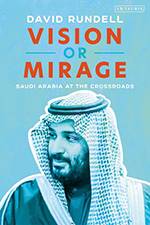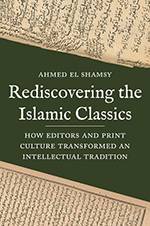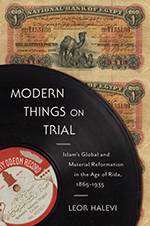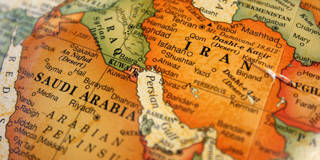Bernard Haykel
Says More…
This week in Say More, PS talks with Bernard Haykel, Professor of Near Eastern Studies and Director of the Institute for the Transregional Study of the Contemporary Middle East, North Africa, and Central Asia at Princeton University.
Project Syndicate: In 2016, you noted that “the tensions between [Iran and Saudi Arabia] go back many decades, but they became especially acute after Iran’s Islamic Revolution in 1979.” How is the election of the hardline Ebrahim Raisi as Iran’s new president likely to affect the country’s strategic rivalry with the Saudis?
Bernard Haykel: There are structural reasons why Saudi Arabia and Iran will remain rivals, regardless of who is in power in Tehran and Riyadh. Both are large countries with leadership claims based on their respective geopolitical heft and on Islam. As oil-producing countries, both have significant resources at their disposal. And they have very different visions for the region’s security architecture.
Whereas Saudi Arabia is keen on maintaining regional stability through the perpetuation of a US military presence, Iran seeks to expel the United States, in the name of anti-imperialism. Iran cannot drive the US out with military action, but it can raise the costs of staying. In fact, US President Joe Biden’s commitment to reducing America’s military footprint in the Middle East partly reflects Iran’s success in bleeding America.
Haykel recommends
We ask all our Say More contributors to tell our readers about a few books that have impressed them recently. Here are Haykel's picks:
-

Vision or Mirage: Saudi Arabia at the Crossroads
by David Rundell
This is the best recently published book on Saudi Arabia. It is written by a former US diplomat who has spent nearly two decades living there, and the story he tells is nuanced and well researched. It also offers a balanced view of the recent transformation – one that avoids the polemics that have swirled around MBS.
-

Rediscovering the Islamic Classics: How Editors and Print Culture Transformed an Intellectual Tradition
by Ahmed El Shamsy
Arab cultures long depended on manuscripts, meaning that the choices modern editors made regarding which manuscripts to edit and publish have had an enduring religious and political impact. This brilliant academic work examines that impact, and shows how the transition from manuscripts to printed books transformed modern Arab and Islamic intellectual and political life.
-

Modern Things on Trial: Islam’s Global and Material Reformation in the Age of Rida, 1865–1935
by Leor Halevi
This, too, is a stunning academic work about the development and adaptation of Islamic intellectual and legal thought to modernity. It studies the life and writings of Muhammad Rashid Rida, a hugely influential figure in modern Islamic thought. Like El Shamsy’s book, it provides powerful insights into recent trends and ideas in the Arab and Islamic worlds.
From the PS Archive
In “Can Saudi Arabia Reform Itself?”, Haykel reviews the Kingdom's plans to ween itself off of oil, and finds it lacking on the political front. Read more.
In “The Middle East’s Cold War,” Haykel traces the battle lines in the regional rivalry between Saudi Arabia and Iran. Read more.
Around the web
In this 2019 New Yorker interview, Haykel describes personal conversations he had with MBS before and after Khashoggi’s murder. Read the interview.
